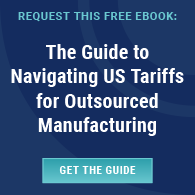“There’s real money to be made from good relations with suppliers. Research shows collaboration and building trust are far more effective in realizing sustained profit contributions from suppliers.”
– John Henke, Ph.D., Planned Perspectives, Inc.
Just like any other relationships, buyer-supplier relationships ought to be invested in by both parties. The benefits that come from these long-term supplier relationships can have a significant impact on an organization’s success. What does it take to develop these types of relationships, and what tangible value do they provide?
The Keys to Good Supplier Relationships
Long-term buyer-supplier relationships are valuable, but they aren’t always easy to achieve. In order to succeed, they require effort and flexibility from both parties.
1. Transparency
At the heart of maintaining a good relationship with your suppliers is transparency. This demonstrates trust which is a key trait for a long-term relationship. Talk with your supplier about your marketplace, your challenges and your projections. This transparency will enable your supplier to be a member of your team, increasing the ideas and possible solutions they can share to help your business succeed.
2. Communication
Transparency is supported with clear and timely communication. Set up a system of communication with suppliers that you prefer, so they are aware of your preferences and can meet your needs. Keep them aware of changes in your company that will impact them, like personnel changes, product redesign, new product planning and forecast changes. Suppliers, especially those in business for decades, have vast knowledge and experiences that may differ from yours and/or your team. Those differences can provide additional value to your company.
Clear and timely communication with the partnership you are fostering will also be invaluable if something doesn’t go as planned.
3. Trust
Ultimately, transparency combined with clear and timely communication builds trust with your suppliers.
This is where the benefits of a healthy buyer-supplier relationship are seen in action. Whether it is supplier consolidation, new insights or purchasing power cost-savings, investing in a long-term supplier relationship is worth the time and energy.
While transparency, good communication, and trust might be things your organization already values, it’s helpful to know how to apply those to your suppliers. Here are a few tips to create long-term, beneficial relationships with your suppliers:
Practical Tips for Good Buyer-Supplier Relationships:
- Discuss and agree upon goals
- Establish KPIs (Key Performance Indicators)
- Share your preferred methods of communication
- Make timely payments on agreed terms
- Agree upon list of lead times
- Address any concerns with your supplier as they arise
- Develop a method to communicate details of concerns (ie. quality checklist)
- Schedule periodic in-person meetings
- Develop a plan for rush orders
- Be proactive! It’s easier to avoid a problem than resolve a problem.
3 Benefits of Long-Term Supplier Relationships
As you invest in increased transparency and communication, the relationship will bring additional value to your business in a variety of ways.
Increased efficiency
The longer you work with a supplier, the more they will understand your market, products, and business. This allows for greater integration from both parties, leading to increased efficiency. Even if issues arise (whether internal or external, like tariffs), because of familiarity and past experience, those will be more effectively handled and resolved than with an unfamiliar supplier. A long-term partnership creates an atmosphere of innovation and feedback. That feedback helps you both improve your individual and shared processes, which reduces costs.
Potential for supplier consolidation
As you build more focused relationships with your suppliers, you can determine the suppliers that are the best fit for your product needs and internal processes. When you find the right fit, this can lead to a consolidated supply chain that ultimately achieves greater savings. It will also show the supplier that you value their relationship which, in turn, will allow for more collaboration in the future.
Reduced long-term costs
Research shows that a focused effort on relationships within your supply chain can decrease costs. Initial setup costs with a new supplier are a large factor, and by expanding your relationship with an existing partner for additional products and goods, you can eliminate many of those costs. You also see more cost-savings through a mutually-beneficial relationship that result in fewer delays, quality issues, or miscommunications that lead to extra costs.
—
As John Henke said, there are significant benefits, both to your profit and processes, that come from building collaborative relationships with your suppliers. Through increased transparency and consistent communication, trust is built that will motivate innovation, streamline your supply chain, and make “real money.”

Al is an entrepreneur, founder, and owner of multiple businesses, including Altraco, an outsourcing and contract manufacturing company. Working across multiple continents and trusted by Fortune 500 companies, Al finds innovative solutions to traditional supply chain challenges. He is a member of Vistage Worldwide.




